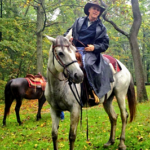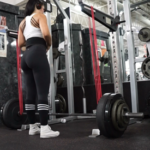Q: Are Mares Harder to Import and Sell than Geldings?
I have been looking for a horse in Germany and noticed that there are many more mares for sale than geldings. I also found out that importing a mare is much more costly and time-consuming than importing a gelding. Why is this? Would you recommend importing a mare if she’s a good dressage prospect? Are mares more difficult to resell in case the purchase doesn’t work out for me?
Danielle Higgins
Chapel Hill, North Carolina
A: To begin, when you say that you have found more mares for sale than geldings in Germany, do you specifically mean in the country of Germany versus the United States? If so, it may appear this way because there are more horses in Germany population-wise than in other countries, which equates to there being more mares in general. Also, you may be coming across more mares than geldings in your search by random chance. In my experience, I have found that there are an equal number of mares and geldings for sale in Germany. However, at any given time of the year when I am looking for a horse to buy in Germany, I may come across more mares or more geldings that meet my criteria.
Mares are more expensive to import than geldings because they must be tested for contagious equine metritis, otherwise known as CEM. CEM is an unusual, sexually transmitted disease that is not life-threatening and is curable. In addition to the standard two- to three-day quarantine period that all horses imported into the U.S. must go through, mares must spend 15 to 21 days at a long-term quarantine facility. During this time, three cultures are taken and if the results of all three cultures are negative, the mare is released. If the cultures are positive for CEM, the mare must be treated, a period of 21 days must pass, and then the mare must be retested. It is uncommon for a mare to test positive, but it does happen.
When considering a mare, keep in mind that mares have a reputation for being more temperamental and opinionated than geldings. One reason for this is that mares seem to have a heightened sense of awareness of the herd pecking order. While this is often construed as a negative, many people feel it is a positive, as there are mares who perform better for their riders than geldings do. Also, during breeding season, which is from March/April through October/November, mares go into estrus/heat cycles for five to seven days every 21 days. As a result, many mares display estrous or “mareish” behaviors both during their cycles and throughout breeding season. Some of these behaviors affect their performance and may include being herd-bound and distracted; being stiff, tense and/or overly sensitive in their backs and to the rider’s aids; urinating and pinning their ears, squealing and/or kicking out at other horses. When you are looking at a mare, you should ask the seller what her behavior is like when she is in heat and also throughout the breeding season. Keep in mind that you can’t always trust a seller to tell you the truth about this, so you should be aware that these behaviors may show up at some point after you have purchased a mare.
In the event that you do buy a mare and she begins to display any of these undesirable behaviors, you can give her a progesterone supplement—a synthetic pregnancy hormone that will keep her from having a heat cycle. Progesterone is available in an oral form that is given daily or as an intermuscular shot given once every three to four weeks or as needed. It is effective in eliminating the estrous behaviors in approximately 90 percent of the mares who receive it and there are few side effects. The negatives to giving progesterone are
1. It is expensive; the average cost is approximately $100 to $150 per month.
2. The daily oral version must be administered with gloves, as it can adversely affect a woman’s hormone activity.
3. The intermuscular shot can sometimes cause swelling at the injection site.
With regard to your question about resale, in my experience, I find that mares are often more difficult to sell than geldings because of the reasons mentioned above. On the flip side, I do come across buyers who only want to purchase a mare and will not consider a gelding. This is usually because they had a great experience owning a mare before and/or they want to be able to use the mare as a broodmare when she is older and/or if she gets injured.
In summary, I would not be adverse to importing a mare if you are a well-suited match.
Diane Rodich is a USDF silver medalist, USDF Certified Instructor through Second Level and a USDF “L” Education Program graduate. Her experience includes importing and selling horses from Europe for clients and for resale for the past 12 years. She owns and operates Top Class Dressage based in Riegelsville, Pennsylvania, and Ocala, Florida.








